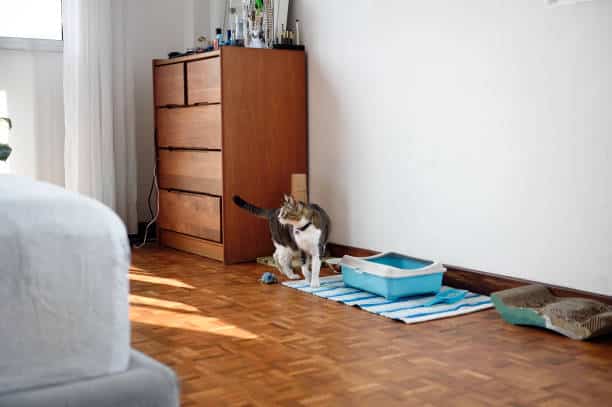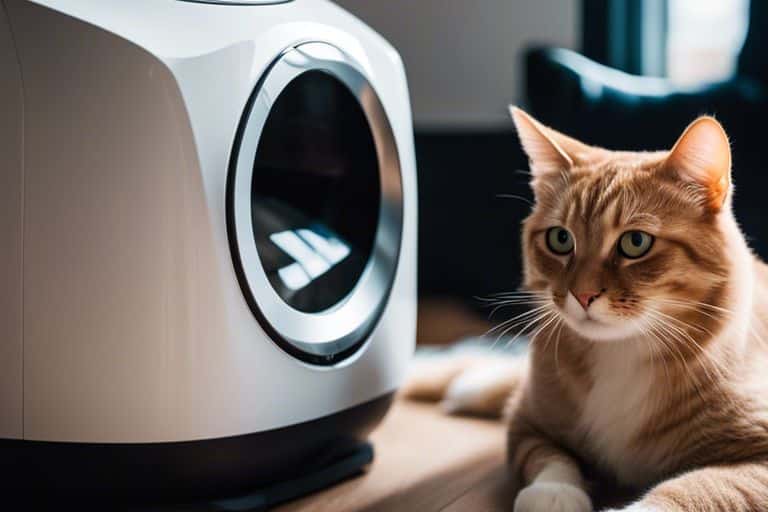The Complete Guide To Litter Box Training Kittens
Most new kitten owners may find themselves facing the challenge of litter box training their furry companions. With the right guidance and techniques, this process can be smooth and successful. In this comprehensive guide, we will cover everything you need to know about training your kittens to use the litter box effectively. From choosing the right litter box and location to understanding your kitten’s behavior cues, we will provide you with expert tips and strategies to ensure that your kittens adapt well to this important aspect of their daily routine. By following the advice in this guide, you’ll be well on your way to having a happy and litter-trained kitten in no time.
Types of Litter Boxes
Your choice of litter box is crucial when it comes to successfully litter box training your kitten. There are several options available, each with its own set of advantages and disadvantages. Any good litter box should be large enough for your kitten to comfortably move around in and have low enough sides for easy access.
| Traditional Litter Boxes | Self-Cleaning Litter Boxes |
| Open-top or covered litter boxes | Electric or manual self-cleaning systems |
| Easy to clean and maintain | Reduce the need for frequent scooping |
| Economical option | Convenient for busy pet owners |
| Suitable for most kittens | May be more expensive |
Traditional Litter Boxes
The traditional litter box is a straightforward and cost-effective option for litter box training your kitten. These boxes come in various sizes and styles, including open-top and covered options. They are easy to clean and maintain, making them a popular choice for many cat owners.
Self-Cleaning Litter Boxes
You may want to consider investing in a self-cleaning litter box to make your life easier. These innovative boxes come with electric or manual systems that automatically scoop the waste, reducing the need for frequent scooping. While they may be more expensive upfront, self-cleaning litter boxes can be convenient for busy pet owners who want to save time on litter box maintenance.
Benefits: Self-cleaning litter boxes can help reduce odor, save time on scooping, and provide a cleaner environment for your kitten. They are a great option for busy pet owners or those looking for a more hands-off approach to litter box maintenance.
Factors to Consider Before Training
All successful litter box training starts with considering several important factors. Here are some key considerations to keep in mind:
- Age of Your Kitten
- Health and Mobility Concerns
- Choosing the Right Location for the Litter Box
Age of Your Kitten
Your kitten’s age plays a crucial role in litter box training. Younger kittens may need more guidance and patience compared to older kittens. It’s vital to start training when your kitten is around 4 weeks old to establish good habits early on.
Health and Mobility Concerns
The health and mobility of your kitten are crucial factors to consider before litter box training. Kittens with health issues or mobility concerns may require special accommodations such as a lower entry litter box or closer placement to their living area.
This ensures they can easily access the litter box and reduce accidents in the house.
Choosing the Right Location for the Litter Box
Training your kitten to use the litter box successfully involves selecting the right location for it. Place the litter box in a quiet, easily accessible, and private area away from their food and water dishes. This will help your kitten feel comfortable and secure while using the litter box.
Training a kitten may require patience and consistency, but with the right approach, your kitten can learn to use the litter box effectively.
Step-by-Step Litter Box Training
| Preparing the Litter Box | Tips for a Successful Training Process |
| An crucial step in litter box training is preparing the litter box. Ensure you have an appropriate-sized box with low sides that your kitten can easily access. Place the litter box in a quiet, easily accessible location away from their food and water bowls. | When commenceing on litter box training with your kitten, consistency and patience are key. Use positive reinforcement such as treats and praise when they use the litter box correctly. Avoid scolding or punishing your kitten for accidents, as this can create anxiety and hinder the training process. |
Preparing the Litter Box
Not only is it important to have the right type of litter box for your kitten, but also making sure it is placed in an appropriate location. Choose a quiet area that is easily accessible for your kitten to find the box when needed.
Tips for a Successful Training Process
Litter box training can be successful with the right approach. Start by keeping the litter box clean by scooping waste daily and changing the litter frequently. Make the litter box a welcoming place for your kitten by using a litter they prefer and ensuring the box is in a private and quiet location.
- Be patient and consistent in your training efforts.
- Use positive reinforcement like treats and praise.
- Recognizing progress is crucial for a successful training process.
Maintaining Good Litter Box Habits
Cleaning and Maintenance Tips
Many new kitten owners underestimate the importance of maintaining a clean litter box. Regular cleaning is crucial to encourage your kitten to continue using the litter box consistently. Here are some cleaning and maintenance tips to help you establish good litter box habits:
- Scoop the litter box at least once a day to remove waste.
- Change the litter entirely every 1-2 weeks to prevent odor buildup.
- Wash the litter box with mild soap and water regularly to keep it clean and inviting for your kitten.
- Place the litter box in a quiet, accessible location to encourage your kitten to use it.
After implementing these tips, you should notice a positive difference in your kitten’s litter box habits.
Detecting and Resolving Issues
Clearly, kittens may encounter difficulties with litter box training, leading to accidents outside the box. If your kitten is not using the litter box consistently, it’s crucial to address the issue promptly. Look for signs of distress, such as vocalizations, scratching around the box, or going to the bathroom in inappropriate places.
Habits such as spraying, avoiding the litter box, or excessive scratching may indicate underlying medical conditions or behavioral issues that need to be addressed. Consult with your veterinarian to rule out any health problems and work on resolving any behavioral concerns through training and consistency.
Conclusion
Presently, you have all the knowledge and tools necessary to successfully litter box train your kitten. Remember to be patient, consistent, and use positive reinforcement during the training process. With the tips and guidelines provided in this comprehensive guide, you will be well-equipped to ensure your kitten develops good litter box habits, leading to a clean and odor-free home environment. Follow the steps outlined, be diligent in monitoring your kitten’s progress, and don’t hesitate to seek further advice if needed. You and your furry friend will soon enjoy a harmonious living space together.
FAQ
Q: Why is litter box training important for kittens?
A: Litter box training is crucial for kittens as it helps them develop good hygiene habits and prevents accidents around the house. It also ensures that the kitten knows where to go to relieve themselves, making cleanup easier for the owner.
Q: At what age should I start litter box training my kitten?
A: It is recommended to start litter box training kittens when they are around 4 weeks old. Kittens at this age are more receptive to learning new habits and can be easily guided towards using the litter box consistently.
Q: What are some tips for successful litter box training for kittens?
A: To successfully litter box train kittens, make sure to place the litter box in a quiet and easily accessible location, use a litter that the kitten is comfortable with, and clean the litter box regularly. Additionally, positive reinforcement such as treats and praise can help reinforce good litter box habits in kittens.







